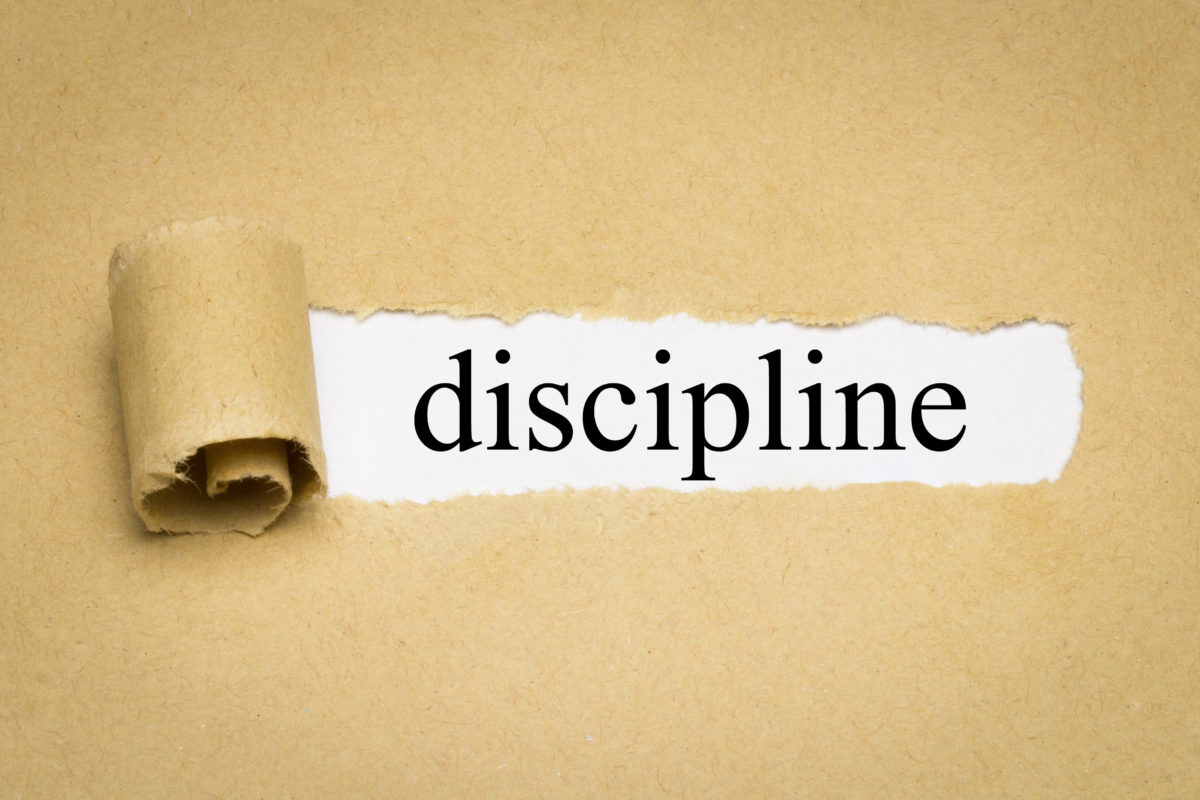Category Archives for "Self-Discipline"
Emotional Neglect-Childhood Emotional Neglect-Jonice Webb, PhD-Dr. Jonice Webb-Running on Empty-Self-Discipline-Emptiness-Unfulfilled-Finding Meaning
Emotional Neglect-Childhood Emotional Neglect-Jonice Webb, PhD-Dr. Jonice Webb-Running on Empty-Self-Discipline-Emptiness-Unfulfilled-Finding Meaning

Casey is tired of coming home to her apartment every day. She feels like her home drains her energy more than her job does. Not because it’s not a nice place, and not because of anyone else who lives there. Actually, she lives alone. It’s just that Casey’s apartment is a disorganized mess. Every Friday, she vows that she’ll do a thorough organizing and cleaning job before Monday comes. But every weekend, she finds something more interesting to do with her time.
Silas knows that he needs to cut down on his drinking. He’s been getting to work later and later on Mondays because he’s a bit hungover from the weekend. This doesn’t get him into trouble with his supervisor, but Silas can see the trend happening and gradually increasing throughout the year.
Beth and James are a busy couple with two young sons. They both work hard to take care of the boys and make a living. Generally, life is pretty good. Except that each secretly feels that the marriage is bland and unrewarding. “Something’s not right,” Beth thinks to herself. “I’m bored,” James thinks to himself. Both know they should say something to the other, but neither wants to take the risk of making matters worse. And neither wants to hurt the other.
We almost all neglect ourselves in one way or another, at one time or another. One could argue that the damage we do by neglecting ourselves is far more substantial than whatever neglect we experience from others.
What sets us up to neglect ourselves as adults? Being emotionally neglected as a child. When your parents fail to respond enough to your emotional needs, they inadvertently teach you how to ignore your own needs as an adult. So, if you have been neglecting yourself, don’t feel bad because it’s not your fault. But it is now your problem to fix. And, believe me, you can.
Read through the common areas of self-neglect below, and see if any ring true in your life.
Have you been neglecting yourself in these, or other ways? If so, rest assured that you are in good company, along with much of the human race.
Take a moment and try to imagine treating a child the way you are treating yourself/your body right now. Would you deprive a child of joy? Vegetables and fruits? Fun? Nice clothing? An opinion? Fresh air and exercise? Then why do you treat yourself or your body this way?
Now is a great time to stop the neglect and start giving yourself the time, attention, and effort that you need and deserve.
Imagine that Casey, Silas, Beth, and James followed the five steps above. Imagine that Casey cleans her apartment, and sets up a system to keep it clean. Imagine that her home becomes the place of comfort and solace that it should be.
The deep roots of self-neglect often spring from a lack of self-worth. Somewhere, somehow, maybe you don’t feel you are worth the effort of self-care.
Just as Silas could take charge of his own life, Beth and James could face their troubles and make their marriage warm and fulfilling again. And you can take charge of your own self-neglect with enough motivation, dedication, and perseverance. You only need to commit to yourself.
You are worth it.
To learn how Childhood Emotional Neglect sets you up for self-neglect in adulthood, see the book, Running on Empty: Overcome Your Childhood Emotional Neglect.
A version of this article was originally published on psychcentral. It has been republished here with the permission of the author and psychcentral.

Between psychology, medical science, and neuroscience, we have never known so much about the human mind. Recently I’ve been amazed at the number and quality of studies that are showing us the amount of pure power our brains have; powers that are truly amazing. Powers that change the meaning of the old phrase, “put your mind to it.”
This worked similarly for calorie burning. In a Harvard study, a group of hotel housekeepers was told that their job provided an excellent work-out. When compared with a similar group who were not told this, the “believing group” lowered their body fat, blood pressure, and BMI far more than housekeepers doing the exact same job but who were not led to believe it was an excellent form of exercise.
The Takeaway: Your brain is far more powerful than scientists ever knew. It is capable of building muscle and raising your metabolism, by the sheer force of your belief and imagination.
The Takeaway: Be careful what you believe about yourself because your brain will make it so.
The Takeaway: Your imagination has the power to significantly improve your ability to perform a complex task.
As a psychologist whose business is helping people change, I am not surprised by these findings. Every day I see people harness their brain powers to make profound changes in their personalities, their relationships, and their lives.
Of all of the things in this world that you can believe in, none are as important as you.
So make a conscious decision. Wish it, believe it, imagine it. Your brain can make it so.
To learn more about Childhood Emotional Neglect, how it happens and how to recover from it, see my books Running Empty No More: Transform Your Relationships and Running On Empty: Overcome Your Childhood Emotional Neglect, and Take The Emotional Neglect Test for free.

Here’s a brief recap of last week’s article, Self-Discipline Season Has Begun:
Meet Josie.
Josie is walking toward the dessert table at the office Holiday Party. “This party is boring,” she thinks, “but at least that double chocolate cake is here.” As Josie starts to put a second piece onto her plate, another little voice in her head says, “Wow, really? Can’t you exercise one little modicum of self-control? Has anyone else eaten two pieces? What is wrong with you?!” Continue reading

Almost everyone struggles with some aspect of self-discipline, but never more than during the holidays. After all, from Thanksgiving to mid-January, we see-saw back and forth between over-indulging in treats, and making resolutions to exercise in the New Year.
Then, when we fail to carry it all out as pledged, we kick ourselves when we’re down.
I think that most people see self-discipline as far more complicated than it actually is. When you boil it down, self-discipline is actually composed of only two ingredients:
Notice anything about those two ingredients? That’s right. They’re skills. Skills, and nothing more.Continue reading

The Fuel of life is feeling. If we are not filled up in childhood, we must fill ourselves as adults. Otherwise, we will find ourselves running on empty.
A quote from the book Running on Empty: Overcome Your Childhood Emotional Neglect
There are legions of fine people walking around feeling numb or empty, and for good reason. They all grew up in homes that did not notice their feelings or respond to them enough.
There is, indeed, a real connection between this type of childhood and that feeling. And the short quote above, in some ways, says it all.
But to summarize in a nutshell how this happens: Your parents act as if your emotions are invisible or irrelevant, so you do too. You block your emotions off to “protect” yourself from being bothered or burdened by them. You lose access to this deepest, most personal expression of who you are.
Then, as an adult, you feel it. Perhaps you know you should be feeling something but you’re not. Perhaps you look around and see other people living in a bright, colorful world but yours seems gray. Perhaps you have a deep sense of something missing inside you. Perhaps you feel an empty feeling in your belly or chest or throat.
Perhaps your body is trying to tell you that something is very wrong.
Healing your emptiness is not necessarily simple, but it is definitely possible. It has been done successfully by many people before you, and it will be done by many after.
The healing process takes place in three different areas, outlined in the table below. Once you’ve looked through the 3 areas of healing your emptiness, continue on to see the steps you can take to work on this.
| Thoughts/Behavior | Relationships | Your Inner Life |
| Recognize what you didn’t get in childhood | Increase emotional connections | Grieve what you didn’t get |
| Emotional awareness & management | Boundaries (distance?) with parents as needed | Develop compassion for yourself |
| Self-care | Work on trusting others | Decrease self-directed anger |
| Decrease self-blame | Therapy relationship | Self-acceptance & self-love |
| Increase self-knowledge | Share your pain with another | Value your emotions |
| If you have depression or anxiety, consider therapy and medication | Let down your walls | Reclaim the parts of yourself that your parents rejected or ignored |
If you find this Table overwhelming, please don’t be alarmed. As I said above, all of these can be done. I know this because I have been through them with many people in therapy, and have witnessed amazing progress.
However, please take note of two things: It takes commitment, a conscious effort, and time; and it often helps tremendously to work with a skilled therapist who you feel very comfortable with.
Step 1: Recognition and Grieving: The first and most vital step for everyone who feels Empty is to recognize that your empty space represents something that you didn’t get in childhood. Identify what is missing (emotional validation, connection and perhaps rejected parts of yourself), and grieve it all. This may involve feeling sad and/or angry. It’s okay. You have to feel it to move forward.
Step 2: Start to Fill the Holes: Befriend your emotions; start noticing when you have them; learn to name them and to manage them. Listen to what they are telling you.
Step 3: Work on Self-Care: Put yourself first, learn to say no. Pay attention to your own needs and recognize that your needs matter. Stop blaming yourself.
Steps 1, 2 and 3 can all be worked on by making a conscious effort, paying attention, and self-monitoring on the tracking sheets from the book Running on Empty: Overcome Your Childhood Emotional Neglect. You may want to enlist the help of a CEN therapist. Visit the Find A CEN Therapist List to find a CEN-trained therapist to help.
Step 4: Let Down Your Walls: Share with a trusted person that you are working on getting closer to people, and to accept and feel more connection and love. Try to express your feelings more and to be more assertive.
You may make more progress here by getting some emotional or physical distance from your neglectful parents. The distance can be temporary, while you work on this.
Step 5: Learn to Love Yourself: Yes, it is easier said than done. This process involves seeing yourself as the child you were, growing up as you did. What parts of you did your parents ignore or reject? Know that they did so because of who they were, not because of who you were.
Have compassion for that little child, and for yourself as an adult. Your struggle is real, and you deserve more and better. You must reclaim, and learn to love, all of the different parts of who you are: your emotions, your needs, your inner you.
Above all, as you do this work, please carry these words with you:
Your emptiness is an important part of you. It represents the old and the past, but also the future and the new.
It is not an absence but free space filled not with pain, but with possibility. It is room for your new story, the one you will write yourself. It is room for your life, your feelings, and the people who you choose.
Fill it with self-knowledge, self-care, self-compassion, self-love, and your people.
Then you will find yourself running on empty no more.
To read more about healing the effects of Childhood Emotional Neglect on your relationships see the book Running On Empty No More: Transform Your Relationships.
To learn more about Childhood Emotional Neglect, see my first book Running on Empty.

Why didn’t I stop myself from eating that fifth piece of pizza?
Why can’t I make myself finish that project at work?
Why did I skip the gym YET AGAIN?
What is wrong with me?!
The only thing worse than struggling with self-discipline is serving that struggle up with a generous dollop of self-directed anger and self-blame. In my twenty-plus years as a psychologist, I have listened to questions like those above uttered countless times by intelligent, competent people who are caught up in an endless, frustrating cycle of “why can’t I?”
We human beings are not born with an innate ability to regulate and control ourselves (self-discipline). These are actually vital skills that become wired into our brains when we receive the right kind of emotionally attentive parenting in childhood.
All of these parental actions and responses are internalized by you, the child. These actions set up a system in your brain during your childhood that will allow you to, later on as an adult, be able to override your own desires. When our parents do this right for us, we not only internalize the ability to make ourselves do things and to stop ourselves from doing things, we internalize our parents’ voices, which later in adulthood become our own.
Now let’s take a moment to talk about Childhood Emotional Neglect.
What is “Childhood Emotional Neglect?” It’s a parent’s failure to respond enough to a child’s emotional needs. In this way, Emotional Neglect is not something that a parent does to his child; instead, it’s something that he fails to do for his child. You may be wondering what this means, and how it is relevant to self-discipline.
Although there are a number of possible underlying causes of self-discipline struggles, like depression or attention deficit disorder (ADD), I often have found that the cause is actually invisible, unmemorable, Childhood Emotional Neglect.
Many people who were emotionally neglected in childhood freely describe themselves as procrastinators. Some call themselves lazy. Common are battles with over-and under-eating, excessive spending, or over-drinking. Many emotionally neglected people also have difficulty forcing themselves to exercise, do menial tasks or do anything that’s not immediately fun or rewarding.
The truth is, all forms of self-discipline can be boiled down to two basic ingredients, which are:
Making yourself do things you don’t want to do — and stopping yourself from doing things you want to do but shouldn’t.
One of the infinite variety of ways that a parent can emotionally neglect a child is to fail to provide enough structure and consequences for the child. Many loving, well-meaning parents do not understand why this is so important. They prefer not to fight with their child. They want to avoid conflict. They want their child to be happy all the time. Perhaps they are distracted by their own interests; perhaps they are addicted, exhausted, self-centered, widowed, struggling financially, or depressed. So they let the child stay out playing far too late; they mow the lawn themselves because it’s easier; they let the child eat dessert too often; they let that curfew-break slide by. They may feel that letting the child do whatever he wants to do makes for a more peaceful, “happier,” household.
I believe that most parents would not opt for the more peaceful household if they understood that they were failing their child. They would instead choose to enforce more rules, assign more chores, and dole out more consequences so that their children would learn how to:
Make themselves do what they don’t want to do, and stop themselves from doing what they shouldn’t do.
If you struggle with self-discipline in a certain area(s), I encourage you to consider Emotional Neglect as a cause. The good news is this: if your brain wasn’t “programmed” in childhood to have this skill, it’s not too late! Once you understand why you’re struggling with self-discipline, you can stop blaming yourself. You can stop calling yourself “lazy” or “weak-willed,” or “a procrastinator,” and instead start on a clearly laid-out road to recovery.
If you would like to learn more about Childhood Emotional Neglect, read more throughout this website. To see my recovery program for Self-Discipline problems caused by Emotional Neglect, see my book, Running on Empty: Overcome Your Childhood Emotional Neglect. To get it in paperback, Kindle or Nook, click HERE.

I’ve seen several therapists in the past, and none of them talked about CEN with me.
My therapist talks about Emotional Neglect, but does not seem to have the same picture of it that you describe in Running on Empty.
My therapist doesn’t seem to understand what I mean when I talk about Childhood Emotional Neglect.
Can you please help me find a CEN specialist near me?
My book, Running on Empty: Overcome Your Childhood Emotional Neglect came out in 2012. Since then, I have enjoyed hearing from thousands of readers. Each week, I get multiple letters and emails from readers telling me their stories or asking questions about Childhood Emotional Neglect.
Often the messages are from people who read the book and feel that they finally can see the underlying cause of their struggles. Many of these folks have been in therapy in the past and found it helpful, but felt that an important piece was not addressed; their Childhood Emotional Neglect (CEN). The questions and comments above are ones which I have heard from literally hundreds of people.
There are several reasons why it is difficult to find a therapist who knows what you mean when you talk about CEN as it’s described in Running on Empty:
This is why so many therapists seem to understand what you mean when you use the term Emotional Neglect, but then don’t talk about it directly or fully as treatment progresses.
Here’s the good news: Any well-trained, competent therapist who is open to reading Running on Empty will be able to quickly jump on board and help you with it.
Here are my suggestions:
I hope you find these tips useful. And I hope you will not hold back from getting help with this. It’s possible to heal yourself, but it can be much easier with the support and guidance of a professional who truly understands what you are going through and how to mend it.
If you are feeling overwhelmed by this process or a bit at-sea, you can request a one-hour phone or Skype consult between your therapist and me (if your therapist is willing, of course). To learn more about scheduling a consult, please visit my Private Practice page.
To learn more about Childhood Emotional Neglect, see my first book Running on Empty.

Make 2013 Your Year
When we think of New Year’s resolutions, we usually think about things we want to change about ourselves. Most people try to think of the things they don’t like about themselves and resolve to change them. Here are some examples of typical resolutions:
This year, I invite you to think of resolutions differently. Instead of changing something you don’t like about yourself, think positively. Think about what you want to accomplish in 2013. Here’s the question to start with:
A year from now, when you look back on 2013, what accomplishment do you want to see?
Here are some examples of possible “Revolution Resolutions” that you might feel happy to see when you look back from 1/1/2014:
Obviously some of these are bigger than others. It all depends upon what’s going on in your life, and what stage of life you are in. If you’re busy raising small children, it may not make sense to choose something as major as starting a new business, for example. Perhaps making new friends or starting a blog might be more in order. The important thing is to choose a resolution that’s attainable FOR YOU and that will improve your life in some significant way.
Here are 4 Tips to help ensure Resolution success in 2013:
FOUR TIPS
To learn more about Childhood Emotional Neglect, see my first book Running on Empty.
HAPPY NEW YEA

“What the heck is wrong with you?”
“You are an idiot.”
“How could you make such a stupid mistake?”
These may sound like nasty, abusive comments that someone might say to his spouse during a major fight.
Actually, they are typical, everyday comments that many people say to themselves on a regular basis. Many of these people would NEVER say anything that hurtful to their spouse or anyone else. These are thoughtful, caring people who would not want to hurt another person that way, because they feel compassion for others. The problem is that they do not have that same amount of compassion for themselves.
Why would a person “talk” to herself this way? I have often found the roots of it to lie in Childhood Emotional Neglect. When our parents don’t teach us in childhood the process of: 1) acknowledging a mistake; 2) figuring out what we can learn from it; and 3) forgiving ourselves and putting it behind us, we have no choice but to become our own internal “parent,” which we then carry forward through our adulthood.
In the absence of a balanced, forgiving parent who holds us accountable, we become our own internal parent. A child-like parent who is excessively harsh.
Attacking putdowns like these can become almost a habit. When you do not treat yourself with the same compassion you have for others, you gradually break down your own self-esteem and self-confidence without even realizing it. You are doing as much damage to yourself as you would if you were living with someone who put you down and attacked you constantly.
If you were emotionally neglected in this way, and find yourself with that harsh internal voice, the good news is that it can be fixed.
Here’s the Reverse Golden Rule: Don’t say anything to yourself that you wouldn’t say to someone you love and care about.
Start paying attention, and catch yourself in your “automatic putdowns.” Consciously put in the effort to challenge those destructive comments, and counter them with more productive one. This does take work, but it is well worth it. And please don’t hesitate to find a good therapist near you.
To learn more about Childhood Emotional Neglect, see my first book Running on Empty.

Several months ago I was at a dinner party. It was late in the evening, after dinner, and we were all sitting around the table talking. I mentioned to the group that writing my book, Running on Empty, has been surprisingly demanding. At times when I would typically be relaxing, reading, or watching TV, I am now brainstorming, planning, or writing. But I explained that I am driven to do this anyway because I feel driven about my message: making people aware of the invisible effects of Emotional Neglect. As my brother-in-law, Rich, was listening to me talk, he said, “I’m going to send you something in the mail that you have to read.”
I didn’t give this another thought until I received an envelope from him a few days later. In it was, “The Common Denominator of Success,” by Albert E.N. Gray. It is a copy of a speech made by Mr. Gray at the National Association of Life Underwriters in 1940. Mr. Gray has now passed away, but his message is timeless. His speech, while geared toward helping insurance salesmen, applies to any human being who wants to be successful.
Here is Mr. Gray’s discovery of “the common denominator of success,” in his own words:
“The common denominator of success–the secret of success of every man who has ever been successful–lies in the fact that he formed the habit of doing things that failures don’t like to do.”
In my role as a psychologist and therapist, I have had the honor of working with many very bright, capable people who struggle with self-discipline. It is painful when a person who has tremendous potential is held back by their own ability to realize it. I have found that the very thing that gets in many such people’s way in fulfilling the potential that they clearly know they have, is an inability to make themselves do what they don’t want to do. Often these folks call themselves lazy. They get angry at themselves for not carrying through the promises they make themselves to do important things. The anger at themselves drains them and eats away at their self-esteem. Gradually, slowly, they start to give up because they are being taken down by a negative cycle of anger at themselves, frustration, and feelings of failure.
I have been quietly treating these people for years. I often can see early on what the patient herself cannot: that her struggles with self-discipline are rooted in her Emotional Neglect. Most people don’t realize that we humans are not born with the ability to structure ourselves. Nor are we born with a natural ability to make ourselves do what we don’t want to do. In fact, quite the opposite. We learn this skill from our parents. As a child, each time your parents called you in to dinner, interrupting your play with the neighbor kids, made you take a bath, clear the table, clean your room, brush your teeth, hang up your clothes, weed the garden or empty the dishwasher, they were teaching you the two most vital aspects of self-discipline: how to make yourself do what you don’t want to do; and how to stop yourself from doing what you do want to do.
Mr. Gray has helped me to recognize that these two most basic skills of self-discipline are not solely a function of childhood parental training. A sense of purpose is also an essential ingredient. Mr. Gray maintains that it is an individual’s personal purpose that drives him or her to make the choice to do things that are unpleasant, boring, or scary. That purpose has to be driven by feeling, not logic, or it will not be strong enough to do the trick. Logic is not a great motivator, whereas emotion is.
Now I realize that beyond helping people stop the self-blame and learn how to make themselves do what they don’t want to do, I also have to help them find their purpose. What do you feel passionate about? What do you really care about? Because once you find what you truly want and desire, your passion will motivate you far beyond what you think you need. And then you will be better able to make yourself do things that you don’t want to do.
I highly recommend reading Mr. Gray’s speech. It is beautiful prose, written in 1940’s (i.e., sexist) style. I suggest that you ignore that part, read, enjoy, and learn.
http://www.theintelligentinvestor.com/wp-content/uploads/2011/03/the-common-denominator-of-success.pdf
Oh, yes, thanks, Rich!
Sign up for the CEN Breakthrough Video Series HERE!
To learn more about Childhood Emotional Neglect, see my book Running on Empty.